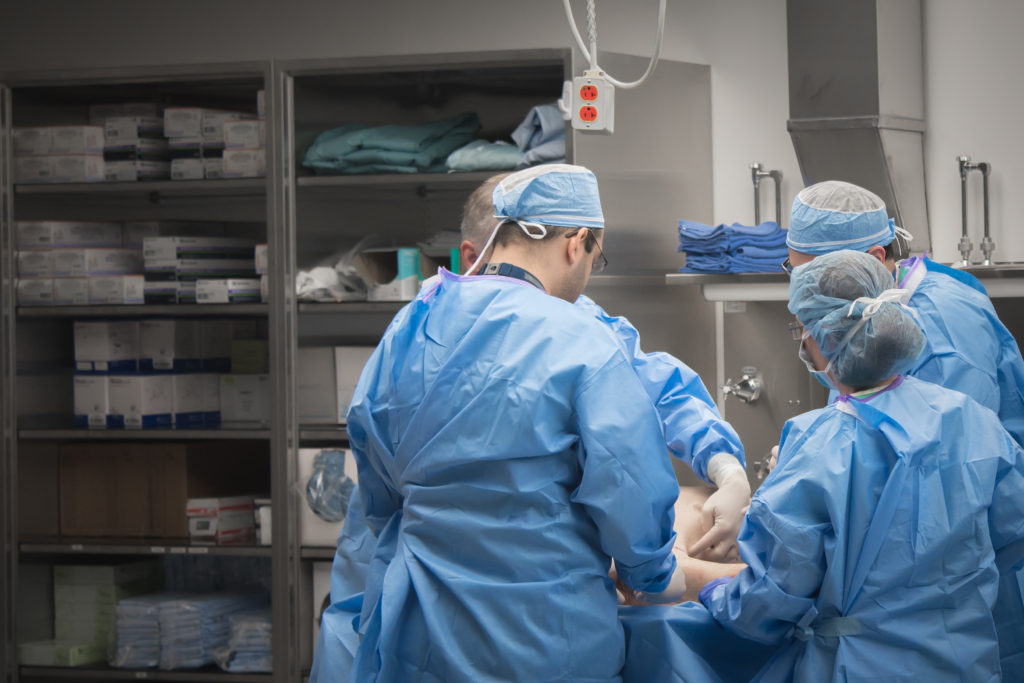By Zane Lacko
Performance and practice lead to better outcomes in the operating room. Modern advances in medicine mean surgeries are less invasive and robotically precise, but there’s no substitution for hands-on training when lives are at stake.
Through a new program at West Virginia University (WVU), residents have increased opportunities to tackle even the toughest procedures through a cadaver-based program that fully mimics what they might run into on the surgical table.
Daniel Grabo, M.D., FACS, has established the Fresh Tissue Training Program, a partnership between the Critical Care and Trauma Institutes, Department of Surgery and Department of Pathology, Anatomy and Lab Medicine. This novel training program gives residents the opportunity to practice large, open surgeries by performing them on perfused cadavers that pump simulated blood through the body. If a vessel is nicked, the surgical field responds accordingly. If there’s too much blood loss, monitors begin to alarm, just like in the real operating room.
“Many residents get advanced, simulated training through modern equipment, and while those technologies and tools are helpful, cadavers connected to dynamic perfusion are unparalleled in training,” says Grabo, clinical faculty at the WVU School of Medicine. “We feel the confidence and knowledge gained give our residents a distinct advantage—something we measure both quantitively and qualitatively.”

The training can be especially helpful for simulating traumatic injuries surgeons could see come in through emergency rooms and for those who serve as medics in the armed forces. That sentiment was echoed by Kennith Conley Coleman, DO, an aspiring trauma surgeon and general surgery resident who has had an opportunity to train in the program.
“I’ve been able to practice life-saving techniques on some very rare, catastrophic simulated conditions, such as devastating injuries to the heart, liver and major blood vessels in the neck,” he says. “It’s invaluable to see and manage these simulated injuries in real time. It gives me the confidence to stay calm and manage them.”
Coleman also added that the program builds a unique culture at WVU for residents, and for him it gives a sense of pride as he and his fellow residents gain more confidence in their abilities earlier in their training through the perfused cadaver simulations.
WVU is one of the few programs in the country that offers this experience. Grabo mentioned that only a couple of universities nationally have it, one of which he helped establish before coming to WVU.
“This is truly a team effort, and we rely on the support of the medical school, our partners and the support of the operating room and STEPS Program to make this a world-class training program,” he says. “The demand for this training is growing by leaps and bounds, and we have several internal departments interested in expanding the training to their curriculum. While that could be a good gauge for success and usefulness, it’s much more gratifying to hear from residents first-hand about how they expertly performed a procedure on a patient they learned in the cadaver training.”
About the Author
Zane Lacko is a digital communications specialist for the West Virginia University School of Medicine. A Morgantown native, he also earned his bachelor’s degree in English and his master’s degree in integrated marketing communications from WVU.



